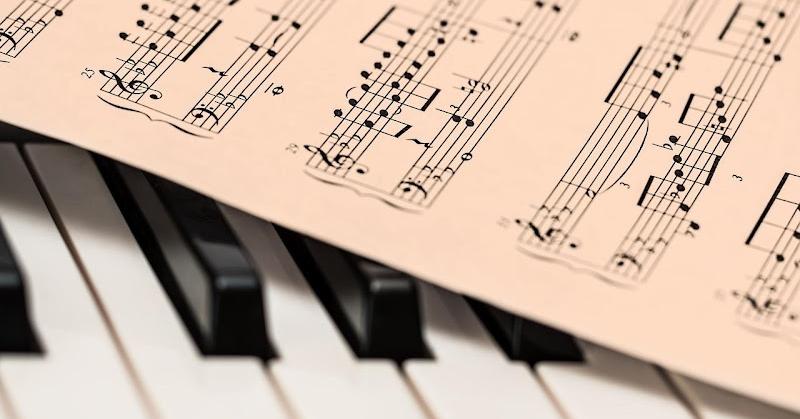The world of cinema is not just about visuals; it’s a symphony where music plays a pivotal role. From the tense strings in a thriller to the sweeping orchestras of epic dramas, music in movies does more than just accompany the action – it enhances, intensifies, and elevates the storytelling. This article delves into the powerful role of music in popular movies, exploring how soundtracks contribute to the cinematic experience and leave a lasting impact on audiences.
Setting the Scene: Music as a Storyteller
Music in film is a storyteller in its own right. It sets the tone for scenes, subtly conveying emotions and thoughts that might not be explicitly stated on screen. A gentle piano melody can speak of a character’s inner turmoil, while a booming orchestral piece can herald the climax of an epic journey. Music guides the audience through the narrative, subtly influencing their emotional response and engagement with the story.
Character Development Through Melody
Soundtracks often play a key role in developing and understanding characters. Leitmotifs, recurring musical themes associated with a particular character, place, or idea, are particularly effective. These musical cues provide insight into a character’s personality, emotions, and evolution throughout the film. They create a sonic identity that is as memorable and defining as the characters themselves.
Music Education and Film: A Harmonious Relationship
For those looking to delve deeper into the world of film music, pursuing a master of music education online offers unique advantages. Unlike traditional programs, online courses provide flexibility, allowing students to balance their studies with other commitments. This is particularly beneficial for aspiring film composers who might already be engaged in the industry. These programs often offer specialized modules on film scoring, providing insights into the nuances of composing for the screen. Additionally, online learning platforms facilitate networking with a global community of musicians and industry professionals, broadening the scope for collaboration and exposure.
Enhancing Atmosphere and Setting
Music is a powerful tool for building atmosphere and setting in films. It can transport audiences to different times and places, from the eerie synths of a sci-fi thriller to the rustic strums of a western. The choice of instruments, rhythm, and melody all contribute to crafting a film’s setting and atmosphere, deeply immersing the audience in the world on screen.
Emotional Resonance: Music’s Impact on Feelings
A film’s soundtrack directly impacts the emotional resonance of a scene. The right piece of music can turn a simple scene into a tearjerker, a tense moment, or a heart-pounding adventure. Music connects with audiences on a visceral level, often bypassing intellectual analysis and directly evoking feelings. This emotional connection is what makes certain film scenes linger in our minds long after the credits roll.
Music as a Cultural and Historical Marker
Film soundtracks can also serve as cultural and historical markers in cinema. They often incorporate elements that reflect the time period or setting of the film, providing audiences with context and enhancing authenticity. For instance, a 1920s jazz soundtrack can immediately transport viewers to the Roaring Twenties. This aspect of film music is particularly important in historical and culturally specific films, where the soundtrack helps to create a more immersive and believable world.
The Evolution of Film Music: From Silent Films to Modern Cinema
The evolution of film music from the era of silent films to modern cinema is a fascinating journey. Initially, live music was played in theaters to accompany silent films. With the advent of sound in movies, the film score became an integral part of the cinematic experience. Today, film scores range from orchestral arrangements to electronic music, showing how film music has continuously adapted and evolved with technological advances and changing artistic trends.
Iconic Soundtracks: Defining Movies and Beyond
Certain soundtracks become iconic, defining the movies they’re part of and leaving a lasting legacy in popular culture. Think of the haunting theme of “Jaws” or the epic soundtrack of “Star Wars.” These soundtracks transcend the films themselves, becoming recognizable pieces of music in their own right. They demonstrate the power of a great soundtrack not just in enhancing the film but in becoming a part of collective cultural memory.
The Art of Scoring: Collaboration between Directors and Composers
The art of scoring a film is a collaborative process between the director and the composer. This partnership is crucial in ensuring that the music aligns perfectly with the film’s vision and narrative. The composer must understand the director’s intentions and the story’s emotional arc to create a score that complements and elevates the film. This collaboration is often key to producing a memorable and effective film soundtrack.
Conclusion: The Harmonious Blend of Music and Film
In conclusion, music plays an indispensable role in the world of cinema, significantly enhancing the storytelling and emotional impact of films. From psychological influence to cultural representation, and from silent films’ live music to today’s digital compositions, the journey of music in movies is as dynamic as it is impactful. Iconic soundtracks that stay with us and the collaborative art of film scoring further highlight the significance of music in movies. Whether through a master of music education online or a cinema enthusiast’s keen observation, understanding the intricate relationship between music and film deepens our appreciation of both arts. As we continue to enjoy the wide array of cinematic experiences, let’s not forget the symphony of sounds that play a pivotal role in bringing these visual stories to life.

